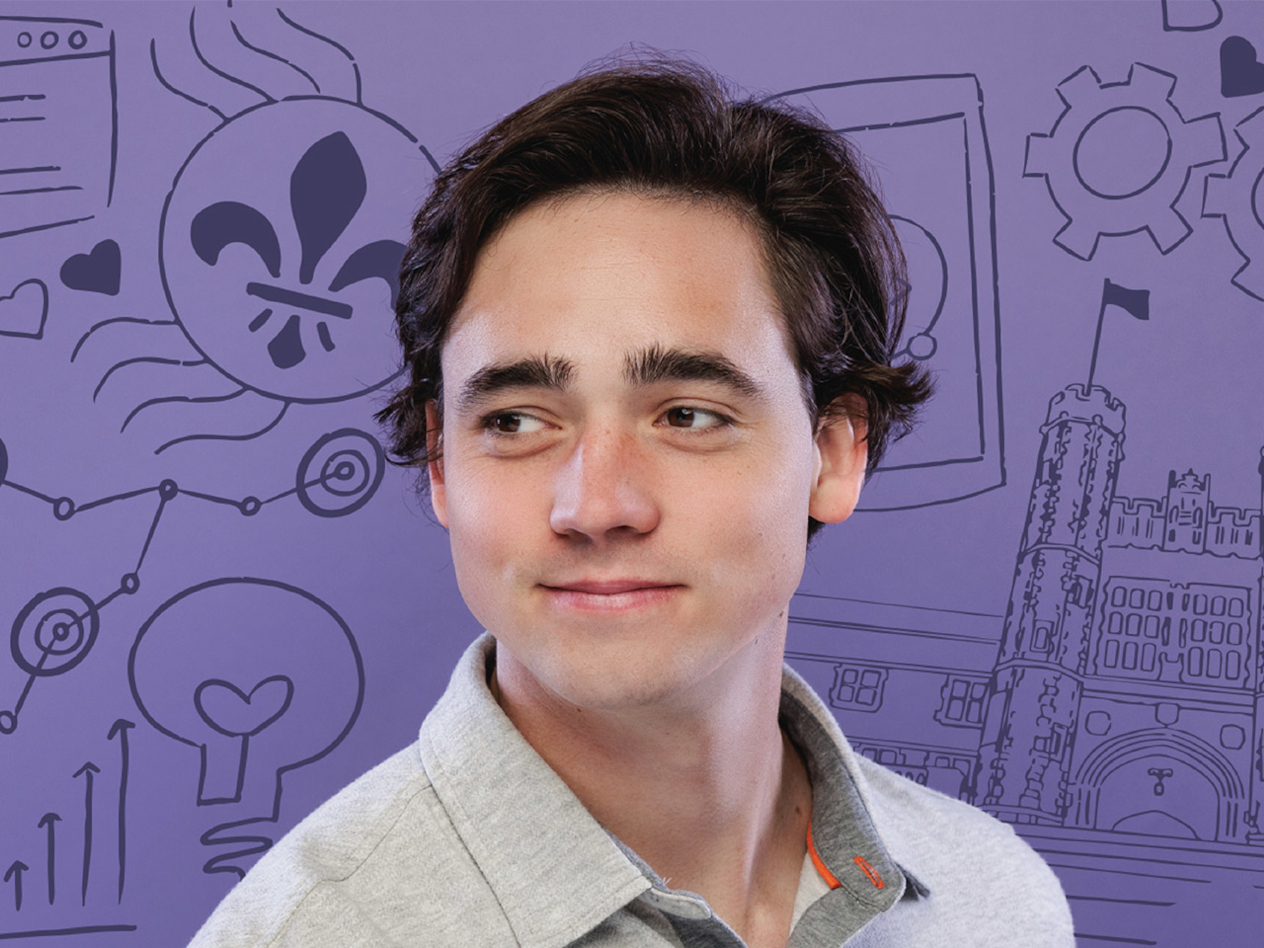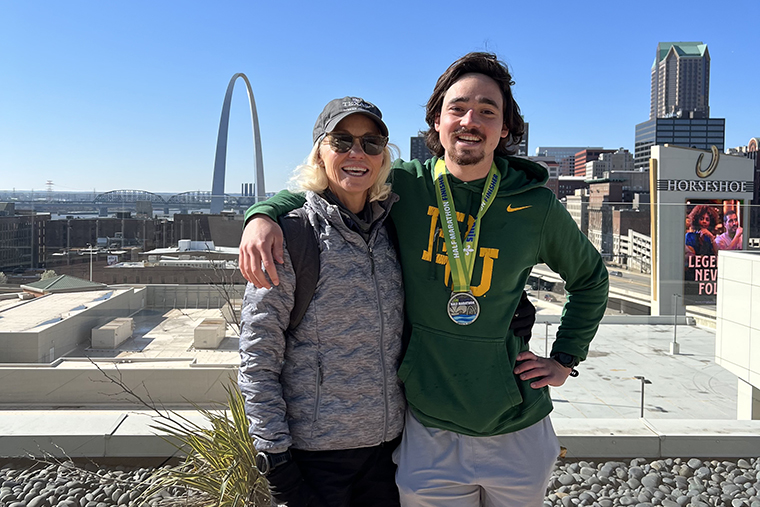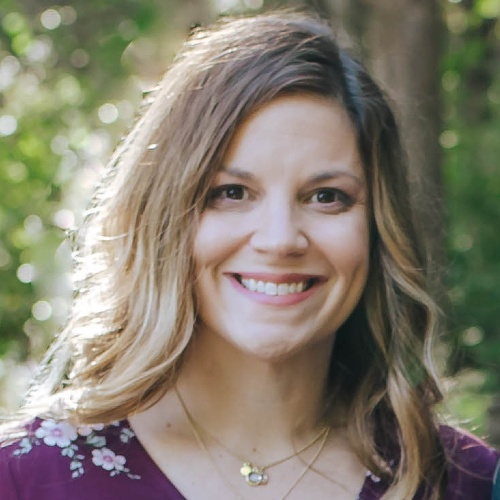Olin entrepreneur to transform sober living home operations
- May 10, 2023
- By Sara Savat
- 3 minute read

Clay Canfield knows a thing or two about making lemonade out of lemons. He had just completed his sophomore year at Washington University in St Louis when he decided to take a leave of absence to address what he described as “progressive mental health issues.” That two-year break could have become a permanent one for many students, but not Canfield. What he did next, ultimately, changed the course of his life.
Inspired to reciprocate some of the support that he received along the way, Canfield moved to California, where he worked in a sober living home—a halfway point between in-patient rehab centers and home—for 11 months. He also discovered a passion for entrepreneurship. Over a short time, he launched a series of startups, most of which failed but taught him practical business skills, he said.
Today, Canfield is an accomplished business founder, with a five-year plan to make his app, Sobriety Hub, the “de facto choice” for sober living home operations. In May, he plans to add another achievement to his resume when he graduates with dual degrees in finance and entrepreneurship from Olin Business School.
Below, Canfield discusses his startup, his advice for student entrepreneurs and why he now calls St. Louis home.

Tell us about your startup, Sobriety Hub.
Sobriety Hub is operations software that helps sober living operators organize their businesses, save time and improve resident care.
What I found while working in a sober living home is that owners and managers have a lot to worry about, like rent collections, vacancies, drug test results, medications, referrals, resident relapses, employees, etc. They utilize a hodgepodge of paper forms, Google sheets and group texts to keep track of everything. Sobriety Hub streamlines operations and helps operators track recovery outcomes, which they can leverage to receive increased grant funding, benchmark against competition and improve quality of care.
You’re from Chicago but have chosen to stay in St. Louis to continue working on your business. Why?
I love St. Louis—it’s the people that make it special. There are so many great local mentors who are willing to get their hands dirty with you as long as you have good questions and are thoughtful. Two local mentors that have helped me tremendously are Doug Villhard (Olin professor of practice in entrepreneurship) and Katie Silversmith (Skandalaris Center in-residence expert).
What advice do you have for other student entrepreneurs?
Start with something that’s feasible given the resources available and take steps to make it happen. I see so many “pie in the sky” ideas with attractive pitch decks and no traction. In school, we can theorize about big ideas, but everything changes when you start putting ideas into practice. Be a doer and start building whatever you’re passionate about. Your greatest resource at WashU is the other students, not money. My Sobriety Hub co-founder, Joey Lanfersieck, is a genius coder. He’s invested over 1,500 hours into Sobriety Hub simply because he loves the idea as much as I do.
Photo: Whitney Curtis/Washington University, Illustration: Monica Duwel/Washington University
Media inquiries
For assistance with media inquiries and to find faculty experts, please contact Washington University Marketing & Communications.
Monday–Friday, 8:30 to 5 p.m.
Sara Savat
Senior News Director, Business and Social Sciences
